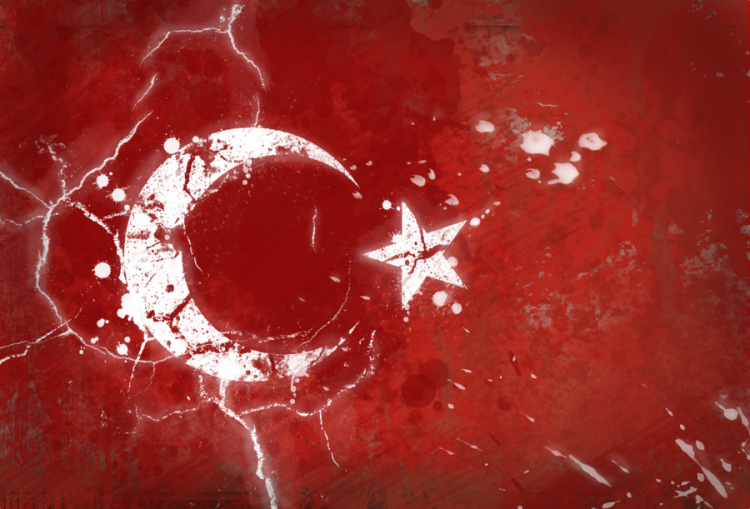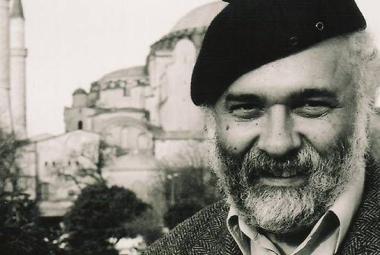From the podium at the Swedish Parliament to the prison in Istanbul
Human rights in Turkey has been in the spotlight since they struck a deal with the EU reducing the flow of migrants to Europe. In a line of violations, on June 20, the Turkish government again demonstrated its fierce crackdown on human rights and freedom of the press when a court placed human rights activists and journalists Sebnem Korur Fincanci, Erol Onderoglu, and Ahmet Nesin in pre-trial detention on charges of “terror propaganda.”
Fincanci, Onderoglu and Nesin may face between two and 14 years in prison allegedly for taking part in a campaign in solidarity with a pro-Kurdish newspaper. The three were among 44 journalists and activists who have acted as temporary editors for the persecuted pro-Kurdish newspaper, Ozgur Gundem, since its editors-in-chief were imprisoned in early May.
Publisist, co-founder of Human Right Association of Turkey nominee of Nobel Peace Prize 2012 Ragip Zarakolu was ICORN writer-in-residence in Sigtuna Sweden, and present at the hearing in the Swedish Parliament. He recounts.
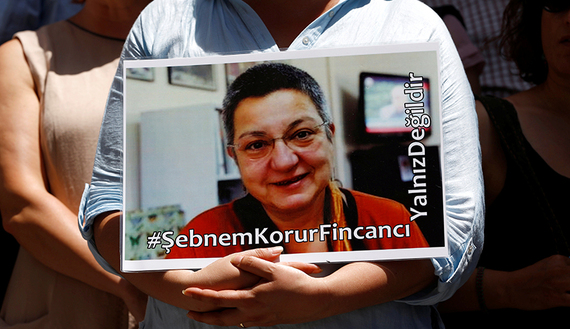
Sebnem Fincanci: From the podium at the Swedish Parliament to the prison in Istanbul
The participants at the panel discussion that took place at the Swedish Parliament in Stockholm were shocked to learn that shortly after that day, Professor Sebnem Fincanci, a physician and expert of forensic medicine as well as an advocate of human rights, was arrested and imprisoned on pre-trial detention. At that panel discussion on the latest political developments in Turkey and violations of human rights and the freedom of the press, organised by the Committee to Support Human Rights in Turkey, Dr. Fincanci was a speaker along with others such as Ahmet Ozmen, President of the Diyarbakir Bar Association, and Cengiz Candar, journalist and writer. Members of the Swedish parliament have found the fact that Dr. Fincancı was arrested, along with Erol Onderoglu and Ahmet Nesin, for “having supported terrorist organisations”, “absolutely incredible” and said that the detainees should be immediately released.
At the Swedish Parliament in June, Fincanci provided a striking analytical picture of the last eleven months in Turkey. The picture was really horrible. The month by month breakdown of the process through which the civilian population was targeted, whole towns destroyed and massacres committed in unrestrained manner was extremely instructive. Fincanci, a past awardee of the Hrant Dink Prize, showed us how a mechanism of destruction has been revived through a reminder of past practice on this score.
Said Fincanci: “Had Turkey confronted the 1915 and 1938 genocides, the massacres of the 1980s and the 1990s could not have occurred. Nor could those that are being committed today. Had we accomplished that, mechanisms that would prevent new massacres would have been in place now.”
In an interview given to journalist Murat Kuseyri /ANF/ while in Stockholm, Dr. Fincanci, President of the Human Rights Foundation of Turkey, said the attacks on the Kurds today evoke memories of the genocide, adding: “They wish to disperse, fragment, and divide the Kurdish population, and force them to emigrate and they kill indiscriminately all who resist this drive. This way, they subject these people to something akin to the genocide of 1915 and the massacre of Dersim in 1938.”
“There has been a dramatic rise in the number of people killed by police fire since the passing in April 2015 of the “Homeland Security Code”, which facilitated the use of weapons for police. While the figure was limited to 5 in the first five months, in the following 9 months fully 217 people were killed because they did not heed the warning to stop. Only 4 or 5 civilians died each year in the 2000s, but the figure shot up to 222 from August 2015 until the end of the year. As of 1 June 2016, the number of civilians killed this year has reached 350. A majority of these are women, children under 10 and elderly people. They have started killing people in the gardens of their houses, in their kitchens, in their living rooms.”
“In the 1990s there was more village torching and evacuations. However, the target was not the civilian people at large, but opinion leaders and people prominent in parliamentary politics. In 2015, on the other hand, it was ordinary people, people living in their houses that began to be massacred. This assault on the Kurds, on the people at large, makes one think of genocide. Tank shelling in a town makes living there impossible. People abandon their houses and their towns.
These people had migrated from their villages to these towns in the 1990s. Now they are being forced to run a second time. This is really a very grave violation. Towns are razed to the ground, they are made into rubble...I have been to Cizre and Diyarbakir and other colleagues visited Yuksekova. We witnessed horrible sights in basements of apartment buildings. There are autopsy reports that show that some of these people had been burnt alive. When we entered the first basement, there were many pieces of burnt bones on the floor. The floor was in effect full of small bits and pieces of bones. A heavy odour hung over the city, the smell of burnt flesh. I am an expert in forensic medicine. This kind of smell we call “transient evidence”. There was a need for immediate investigation, an onsite examination. We were the first to go into that basement together with lawyers. I found a child’s chin there...”
“Rough beating is a very widespread type of torture” says Dr. Fincanci. “They do it out on the streets. Within the last decade, torture in police precincts has been replaced by methods of torture during apprehension. It’s mostly rough beating, handcuffing the hands on the back, and forcing them the body into certain positions.”
Those who think they have humiliated Dr. Fincanci by immediately handcuffing her, as well as Nesin and Onderoglu, are in fact demeaning Turkey.
To those who wanted JeanPaul Sartre thrown behind the bars because he kept criticising the policies of the French government, De Gaulle replied “Sartre is France”. In like manner, Fincanci, Nesin and Onderoglu are the pride of Turkey. Just like the few province and district governors who, in 1915, refused to carry out the orders of the Envers and the Talats, who sullied the Turk’s name. Those governors had to pay for this with their lives.
I do not see the reason for the imprisonment of these three people as limited to their solidarity with the newspaper Ozgur Gundem and their ownership of the freedom of the press alone. Because there were many others who did this before and none was arrested.
This is a special type of ideological punishment. It is an act of revenge on the part of the special apparatuses that constantly change their name and that have acquired a de facto “freedom of impunity”. It is no coincidence that these three have been chosen for imprisonment.
This is damning evidence of how the judiciary itself is being converted into an ideological apparatus. Even in 1982, under military rule, when we were detained as the editors of the newspaper Demokrat together with prominent intellectuals Emil Galip Sandalcı and, Arslan Başer Kafaoğlu, there were military public prosecutors who demanded that we be tried without pretrial detention and there were judges that went along with that request.
In 1993, when Ayse Nur published Yves Ternon’s The Armenian Taboo, the judge let her go free, despite the insistent demand of the public prosecutor that she be imprisoned on pretrial detention.
What was done to Professor Turkan Saylan on the basis of an orientation of ideological revenge is
now being done to the trio FincanciNesinOnderoglu. The teams that decide this arrest may change. Sometimes they may even arrest one another. But the mindset is always the same. Nothing changes.
And political Islam is now working hand in glove together with the neoErgenekon.
Fincanci was arrested because she reported on crimes against humanity.
Onderoglu was arrested because he reported on the violation of human rights under each and every despotic regime, including that initiated by the 28 February 1997 decisions against a duly elected Islamic government.
And Ahmet Nesin was arrested to encourage the circles that committed the Sivas massacre in 1993, where fundamentalists torched alive 35 Alevis and intellectuals, to stage such massacres anew. He was arrested because he is the son of the famous satirist, the late Aziz Nesin, always a fullscale target of Djihadis.
This is nothing but a resuscitation of the methods of the Inquisition.
Italy under the Inquisition entered the year 1600 burning Giordano Bruno on the stake.
The Islamists, in an operation of the “deep state”, torched 35 people alive because they wished to burn Aziz Nesin.
However, if we were to use their own discourse, Allah did not permit them to massacre Aziz Nesin himself.
Let them go all, the way to hell with their crime against the humanity for having burnt those people alive!
Slides from Fincanci's report
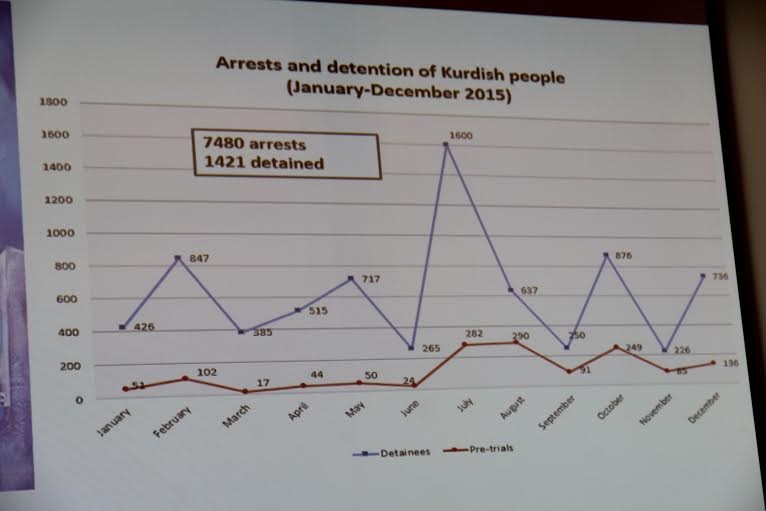
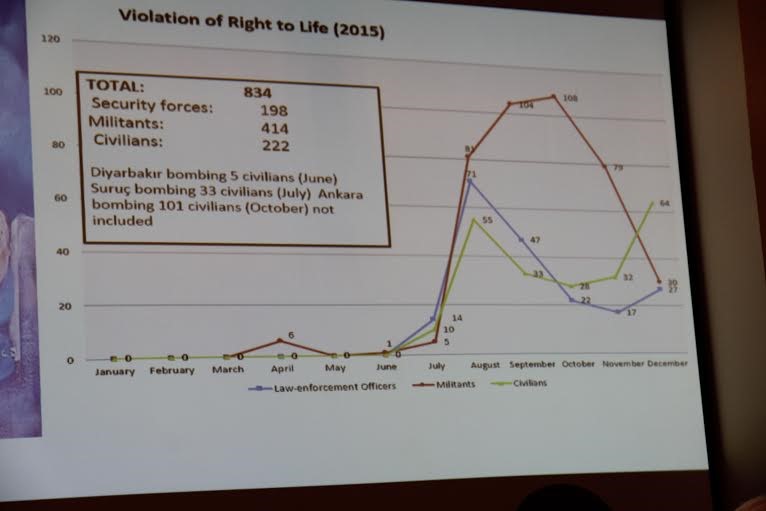
Certain slides from the report by Dr. Fincanci documenting the crimes committed against humanity explain very well why she was imprisoned on pretrial detention.
Writers
Latest news
-
23.04.24
-
18.04.24
-
04.04.24
-
26.03.24
-
21.03.24
Ragip Zarakolu
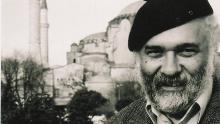
Turkish writer and publisher Ragip Zarakolu is an iconic advocate for the freedom to publish and write in Turkey and beyond and 2012 Nobel Prize nominee. He arrived in Sigtuna as the city's first guest writer in December 2014. In spite of 40 years of censorship, harassment, death threats and imprisonments by the Turkish authorities and far right groups, Zarakolu has never given up his fight for freedom of thought and the necessity of minorities right to be heard.
Ragıp is a founding member of the Turkish Human Rights Association (IHD). He is also the chairperson of the Freedom to Publish Committee of the Turkish Publishers Association (TPA/TYB). For some time Ragıp Zarakolu also chaired the Writers in Prison Committee of International PEN in Turkey, ICORN’s closest partner.
Zarakolu has published several books on the Armenian Genocide, such as George Jerjian’ s The Truth Will Set Us Free: Armenians and Turks Reconciled and Professor Dora Sakayan's An Armenian Doctor in Turkey: Garabed Hatcherian: My Smyrna Ordeal of 1922. In November 2007 Zarakolu published David Gaunt's book Massacres, resistance, protectors about the Assyrian Genocide in Turkish. All of them brought him new criminal charges.
